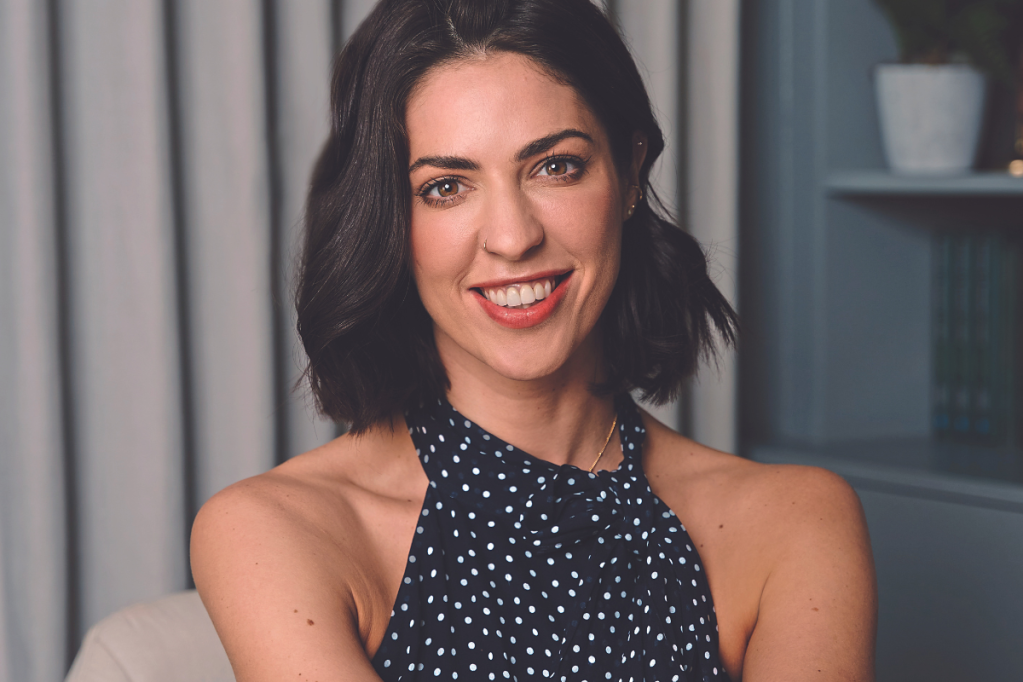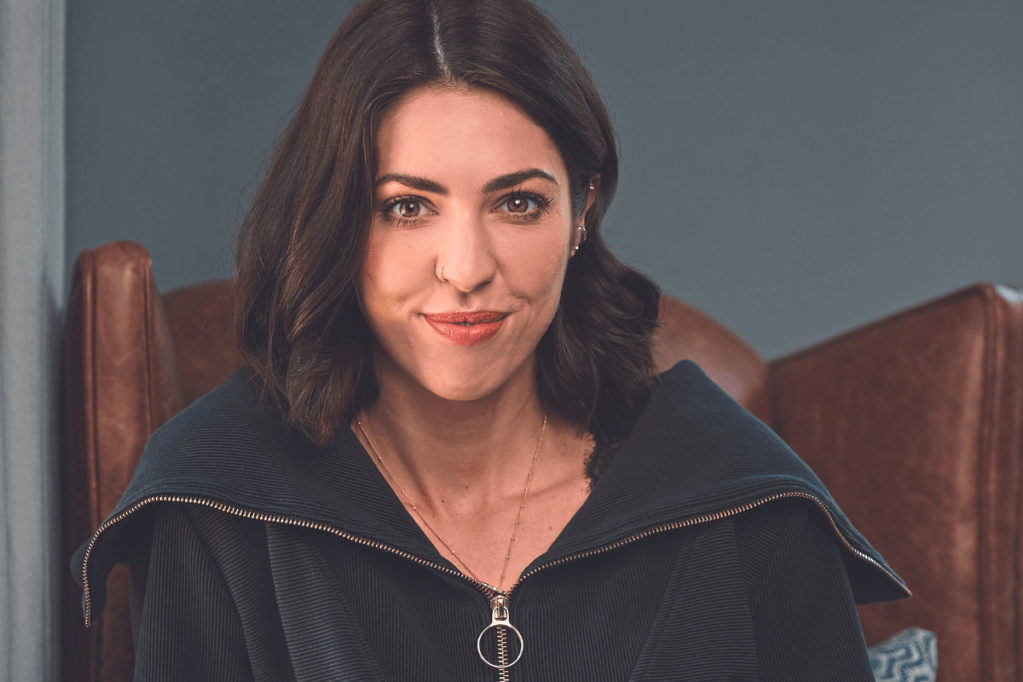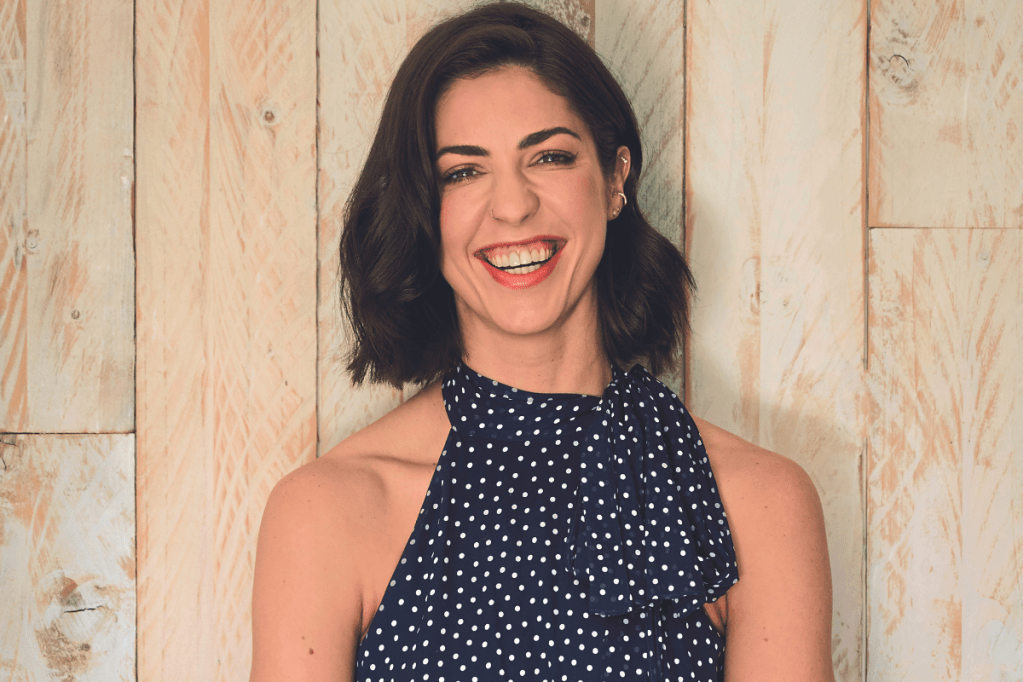Anna Mathur: ‘I feel less fear and more joy’

Psychotherapist and podcaster Anna Mathur talks to Psychologies about learning to get comfortable with the uncomfortable, and how to stop sweating the small stuff…
Words: Holly Treacy, Images: Olivia Spencer
Never miss an issue! Subscribe to Psychologies for just £25.99 and receive a FREE Weleda gift set, including a shower gel, shower bar, and hand cream.
Most people will know Anna Mathur for her work in the motherhood space. The psychotherapist, podcaster, Sunday Times bestselling author, and mum-of-three is passionate about sharing her personal and professional experiences to support other mums – and mothers like me hang on her every word to guide us through not only raising our children but also raising ourselves. However, her fifth book, The Uncomfortable Truth (Penguin Life, £16.99), sidesteps the focus on parenting and looks at the wider issues that can trigger our deepest fears.
When I ask Mathur what truths she had to face head-on when writing the book, she says they were the things that fueled her nightmares: worries and anxieties. “As I was writing the book, I saw life’s uncertainties in black and white,” she says. “There was also a grieving for the joy and headspace I could have had, had I gone on this journey earlier.”
So, what made her want to go on this journey? “I had a conversation late last summer with a lady in hospital. I was in for something routine, and she was quite old and coming to the end of her life. She was coughing, so I offered her a glass of water, and she told me to not worry about the little things,” Mathur explains. “I had an overwhelming feeling of not wanting to get to that point in my life having spent all my time and energy focusing on all the things I couldn’t control; being robbed of joy and presence in my relationships because of anxiety.”
I think most of us can relate to sweating the small stuff on a daily basis, no matter how mindful or grateful we are. “Writing the book, I was faced with all of these things that have dominated so much of my life,” says Mathur. “So what I was staring square in the face was the uncomfortable truth of all of those uncertainties, but also that loss that the fear had created in my life. I had a real desire to help other people live more intentionally and fully.”
She recalls how she’d sometimes find it easier to dive into social media than deal with the stress of parenthood. But Mathur discovered during this process that, with presence, you get to experience things more, and there’s richness in those moments as well. “I found even little things, such as cold-water showers, are a good way to get your body and mind used to embracing discomfort,” she admits. “Actually, in turning towards that discomfort, we can learn to live more fully, because a lot of life is uncomfortable and, culturally, we’re wired to avoid that.”
According to Mathur, whether it’s mental or physical, we’re encouraged towards speed, efficiency, and also to numb – to drink, escape, and scroll. “Collectively, we’re feeling quite disconnected, empty, and lonely, so this seeking of comfort is not serving us,” she shares.

Embracing Acceptance
With this information then, does Mathur think that we should be more accountable for the decisions we make? “We can either fritter our life away and get to the end and think, ‘Damn, I didn’t engage in it in the way I wish I had,’ or we can accept those decisions we made and really be in it for the ride,” she begins. “That might bring up feelings of guilt or shame, but that shouldn’t mean we ignore those truths. We’re often told to shy away from feeling guilty, but that emotion is there as a prompt to remind us that we’re not living in line with our core values. In choosing comfort, we are shying away from the drive within us that encourages us to be more accountable.”
Mathur offers the example of death: “There are some cultures that really embrace the idea of death as a part of life, and have wonderful rituals and routines surrounding it,” she says. “But, for some of us, in suppressing that awareness, it’s causing us not to live.”
Mathur recalls a moment she writes about in the book: “I was sitting at my desk and thought, ‘You know what, I’ve spent so much of my life trying to sidestep and manipulate these uncomfortable truths – people-pleasing and controlling situations because of fear of failure.’ That period for me was just to recognize and name these facts. I am going to die. Some people won’t like me… To start with, it sounded like some distorted upside-down affirmation.”
But, strangely, Mathur found that by reading and repeating them, they stopped being the be-all and end-all. “I’d suggest being that voice of gentle reassurance that you need,” she says.
I’m certain most of us can relate to being in a situation where you’re worried about what other people will think of you. You might confide in your friends and they may tell you not to worry. We’ve all heard the phrase (perhaps even said it ourselves) that “people are too interested in what they are doing to be judging you,” but Mathur says the reality is people probably are judging you. “Someone could be thinking something really horrible about me right now,” she admits, “but it’s far more powerful for me to come to a place of acceptance, rather than to constantly seek reassurance.”
Mathur encourages us to remind ourselves that we are doing well and living in line with our values, and that’s an amazing thing that you can bring to the world. “To live more authentically is really liberating,” she says. “Those people don’t know me, they don’t know my relationships, they don’t know my heart. What proof does their opinion hold? It’s just subjective. Feeling less tethered to that fear frees us up.”

Unspoken Truths
Mathur admits in her new book to previously being a “yes” woman, and I wonder what it was that changed the narrative: “Burnout,” she says. “I reached a place of depletion where I couldn’t say ‘yes’ at all. I had chronically ploughed through the limits of my resources.” She confesses that in the past she lived for others because she thought that’s what it meant to be a “good” person. “I lived for my children and I lost myself,” she admits. “I needed to start saying ‘no’, because my burnout was so acutely humbling, I felt quite scared at the prospect of finding myself back to always saying ‘yes’.”
What started out as self-preservation and deeply uncomfortable, soon helped her become a more balanced, healthier, and happier version of herself. “It just becomes embedded as a part of holding healthy boundaries,” she says.
When I inquire as to why many of us want to people-please our way through life, Mathur tells me that there’s nothing wrong with wanting to be liked.
“If we go back generations and you were cast out from the community, you were not safe,” she explains. “It’s deeply ingrained in us to want to be accepted. But because our social circles have grown – partly due to moving around more, partly due to social media – that desire to be accepted grows to far more people, then to strangers, and eventually becomes out of control.”
A question that Mathur encourages her clients to ask themselves is, “What would I do if no one knew or cared?” “This can often strip away the people-pleasing that can feed into the fear of what people think,” she says. “And it taps into the gut sense that is so often more aligned with our values and needs. When you feel you need to put on a show or impress someone, but you know it’s not sitting right with you, just ask yourself this question – and then challenge yourself to start living a life in line with the answers.”
When it comes to living more in line with those unspoken truths, Mathur encourages us to consider all the things we’re not saying. She offers the example of being in a meeting and a colleague saying something you really disagree with, but you keep quiet because you want to avoid a debate. “Our fear of being rejected will end up with us consistently and chronically rejecting ourselves,” she adds. “This doesn’t nurture confidence. The world will still carry on turning even if someone disagrees with you. We can withstand peoples’ disappointment.”

Mathur believes that the right people can make space for you and honor your boundaries. “Sometimes when we start living more authentically, some relationships can’t withstand that, and some environments don’t feel safe anymore – there’s a loss and grief that comes with that. There’s a cost that comes with living authentically, and that comes when you start challenging how you’ve been living thus far.”
But there is a way to empower our potential: “Recognize the emotions that you’re not verbalizing and the boundaries that you’re not holding,” says Mathur. “Start taking risks to speak them out, in small and safe places to begin with. Then you’ll grow in confidence to start speaking your truth in larger spaces. Sometimes we need to ask people for their help and their resources and to spend a little of themselves on us.”
Avoiding Internalizing Uncomfortable Truths
So how do we avoid internalizing these uncomfortable truths as harmful facts? “Seeking comfort amidst the grappling, without avoiding the discomfort,” shares Mathur. She recommends sidestepping someone that’s just going to give you a lot of platitudes. “Say you’re waiting for a diagnosis and you are really scared, you can either go to the friend who says, ‘You’re going to be absolutely fine and the chances are so slim,’ or you can go to the person who says, ‘How scary for you, I’m here for you regardless of the outcome,’” she says. “Choose people to sit with you in the discomfort rather than those who want to paper over it.”
Since she’s been staring these truths straight in the eyes, Mathur has been feeling less fearful and more joyful. “There’s so much fear around what other people think, whether we’ll fail, our own and others’ deaths. But I feel more confident and connected as a result of living this way.” She offers some clarity around when you stop caring what people think: “It doesn’t mean you don’t care about people; it just means you’re not willing for their opinion to dictate whether you like yourself or not.” That’s great advice, and with it, I think we all just got a little more comfortable with life’s uncertainties.
The Uncomfortable Truth by Anna Mathur is out now (Penguin Life, £16.99).
Never miss an issue! Subscribe for just £25.99 and receive a FREE Weleda gift set, including a shower gel, shower bar, and hand cream.









